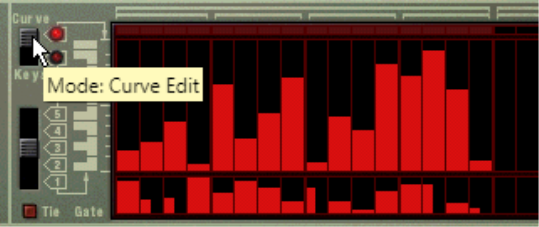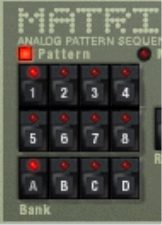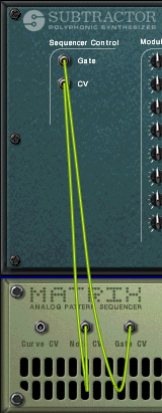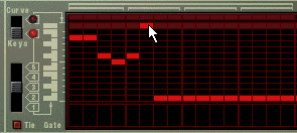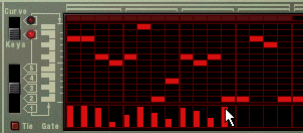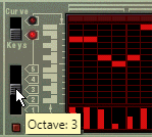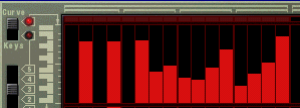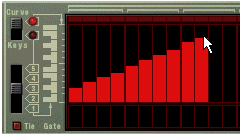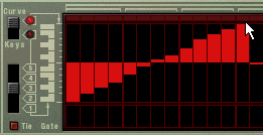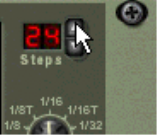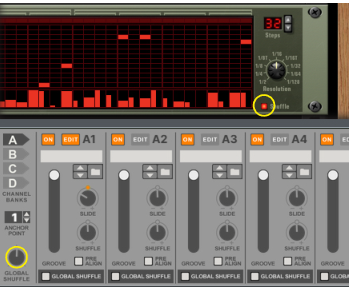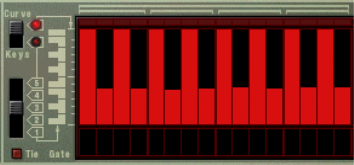|
•
|
Gate CV represents a note-on/off value, plus a level value (that could be likened to velocity).
|
If the Tempo track (see “Recording tempo automation”) is used, Matrix will follow this.
Bipolar curves are essential in some instances. If you want to use the Matrix to CV control the Pan parameter for a mixer channel for example, a unipolar curve would start at zero - which for Pan equals center position. This means that you would only be able to use the curve to pan in one direction from this center position. A bipolar curve however, will have the zero value in the middle, allowing you to draw pan curves in both directions. Bipolar curves can also be used for controlling parameters with positive and negative values.
Tied notes are also essential if you want to create typical TB-303 “Acid”-type lead lines - see “Programming “Acid Style” lead lines”.
In Reason, you can activate or deactivate shuffle individually for each pattern in a pattern device. However, the amount of shuffle is set globally with the Global Shuffle control in the ReGroove Mixer. The ReGroove Mixer is described in “The ReGroove Mixer”.
The Patterns play to the end before changing, so you won’t have worry too much over the “timing” of the pattern changes you input manually. When you are done, the sequencer track will contain pattern change data, and the patterns will automatically switch according to the order set while recording. More on recording pattern changes on “Recording pattern automation”.
|
2.
|
This parameter is used for modulating the output level (volume) of the synthesizer. Volume modulation is often referred to as Tremolo. You can use a unipolar curve (see “About Unipolar and Bipolar Curves”) for this example.
|
8.
|
|
|
If “Tie” (see “Using Tied Notes”) now is activated for a step, the note will be tied to the next and the pitch will continuously “glide” to the pitch of the following step.
|


